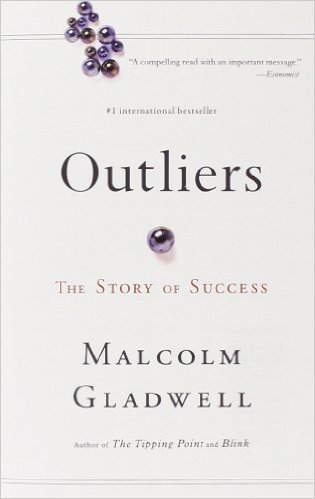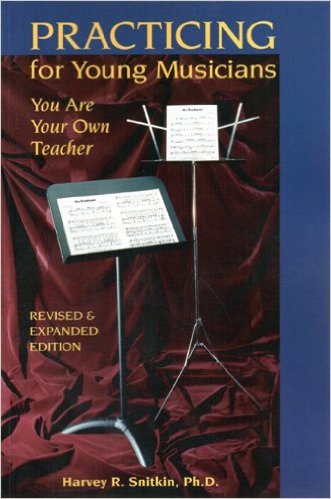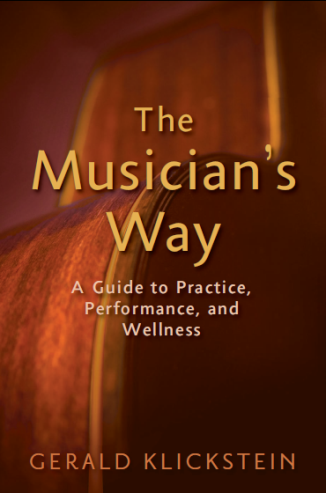I continue my series about the “four tendencies” developed by Gretchen Rubin in her book Better than Before. In the first episode, we talked about obligers, people who mostly meet outer expectations and work better when they feel useful to others.
Today, let’s speak about the opposite personality, I mean questioners. They respond better to inner expectations and they need to understand why they have to do something. When they are interested in something, they want to know all about it. Being told “that’s the way it is” is never satisfactory for questioners, they need to know why.

If you or your students recognize yourself in this description, check out these tips for questioner musicians!
Do some research:
When you’re interested in something, you tend to dig very deeply the subject. Use that tendency to motivate yourself. Look around for details about your instrument, its history, what’s new about it. Read books, follow blogs and facebook pages, go to master-classes or watch some video ones on youtube. You’ll be surrounded with clarinet, or cello, or piano, and that will certainly get you to play your instrument more often.
Get information about the piece you’re currently working on, and research the composer. Analyze the score or get some help to do it. Listen to recordings, compare them, ask yourself why you prefer one version rather than another. Everything that helps you better understand how things work should increase your motivation to play.

Do more research:
Your research should not necessarily be related to your instrument. You can learn more about practice and methodology, and understand the mechanisms of learning. For instance, if you understand why practicing scales efficiently is important, or why working slowly is mandatory, then you’ll use those methods with pleasure instead of resisting them.
Here are some books that could help you having better practicing habits:

Outliers by Malcolm Gladwell. He explains the reasons of success in different fields, with many inspiring examples. He talks about the 10.000 hours concept. According to this, a total amount of 10.000 hours of regular practice is requested to master any skill in any field.
The Musician’s Way by Gerald Klickstein. He explains how to cultivate focused mental habits by setting up explicit practice goals. He also talks about the necessity of regular pauses, and gives alternatives to bad habits such as mindless repetition. Gerald Klickstein has a very interesting blog that you should take a look at.

Practicing For Young Musicians by Harvey Snitkin. Very useful for teachers who want to help their young students to improve their practicing methods. Most of the progresses a student make are made between two lessons. Therefore the student has to be his own teacher, develop his critical judgment and build a series of funny and productive techniques to make progress.
If you enter the words “music practice books” in your favorite search engine, you’ll see that there is plenty of books about that.

Continue doing research:
Turn yourself into your own research topic. Do some simple tests on your practice habits. Change the time and duration of your sessions, vary the number and length of the pauses, mix up the order of the different elements of your practice routine… Then, determine your ideal schedule. Since you tend to resist orders that seem arbitrary to you, it should be more efficient to create your own, rational routine.

If you are a teacher and you want to help your questioner students, be careful not to base your advice to them on what works for yourself. Encourage them to think about their own practice schedule, then debrief with them during their next class. Encourage them to become their own masters, at least for their daily routines.
Now, stop doing research, and act!
Your skill can become a flaw if research takes up all your time. Now close your books, switch off the computer and take your clarinet!

It seems obvious, but it’s not that easy for a questioner who asks himself a thousands questions and who gets easily distracted by his urge for knowledge.
Once the schedule has been rationally decided, the practice has to become a routine without any space for decision making. Picking up your instrument should become automatic. To do so, it could be very useful to link your musical practice with little rituals that would condition you to play, without thinking. For example, if you’ve decided that early morning is ideal for you to have a practice session, transform your decision into a habit by setting your alarm clock at the same time every day, and always having a cup of coffee right before playing, or a few minutes of yoga or exercise movements. It doesn’t matter what the routine is, the important thing is that you’ll come to associate those small acts and gestures with playing, and practicing your instrument will be done without requiring any decision. The association of your morning coffee with the clarinet will condition you to play (and isn’t it better to link coffee with the clarinet rather than with a cigarette?)

Figure out your own routines, with gestures, tastes, smells or simple actions. Stick to them for a certain period of time and you’ll notice they’ll become second nature, especially if you choose pleasurable elements. Questioners don’t usually appreciate to be conditioned to do something, so the trick here… is to be in control of your own conditioning!
The next post will be about upholders. Until then, dear questioners, do tell me what you think of those tips, and share some other strategies you may have set up!


Love this! Over time I’ve naturally assumed some of these behaviors anyway and overall don’t have any problems practicing/improving. What I did realize is that when I have to practice a piece I really hate, even though I want to still do well, I really just do the bare minimum. I never thought about it until now, but pieces I haven’t liked at first, I would come to like after learning more about, whether it was a teacher telling me a story about the composer or even just stating what an etude is meant to teach. It’s also sometimes not even about liking something more, but not understanding something makes it super hard to remember. It reminds me of math class where we would learn a certain formula for something but not know why it calculated what it did. I wanted to get good grades and understand what was going on, but literally couldn’t unless I understood why that formula worked. Basically no math made any sense to me, as I would just guess what formula to use and would often get it wrong (since it was just a series of numbers/letters/symbols gibberish to me), until calculus when we finally learned where so much of that actually came from. But by then it was too late lol. Anyway, before I get too off topic, great article and suggestions!
Thanks Cyndi for this great comment!